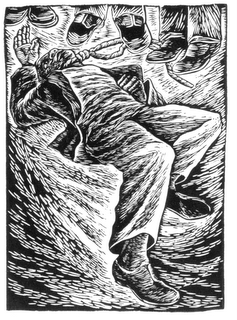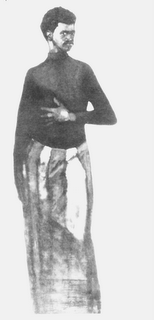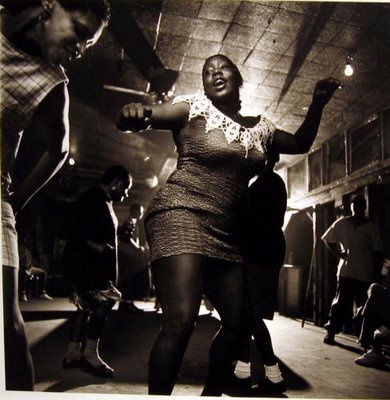It’s Only a Game

By Robert Bell
The final week of the year (2006), one of the western world’s most regressive media institutions, the major broadcast networks in the United States, collectively decided that the critical news of the week was that the prosecution in the Duke lacrosse team sexual abuse case would drop the most serious of charges (rape) against the white defendants. Almost in unison the talking heads of NBC, ABC, CBS and Fox clamored about the unusual, “unfair” predicament, incensed that the renowned educational icon of the new South should be dragged through the mud. Duke University, the school that has brought us venerated coach Mike Krzyzewski and the rest of its basketball legends, had been seriously embarrassed at the allegations brought against several white athletes engaged in drunken frolicking that involved several black female strippers.
Not only were the corporate media elites elated at the dismissal of charges, but the sports talk show hosts and commentators were ebullient. Arguably the most pitiful refuse resulting from the seismic growth of big-ticket sports, these talkers, particularly those on radio, virtually define America’s descent into cultural triviality. A more unimportant, uniformed, over-paid bunch exists nowhere else in the world. They are the most bizarre example of commercial hype and misplaced value that results from this society’s ungodly worship and promotion of sports. More importantly and dangerously, the sports talk commentator (and writer) often assumes the role of jackleg political and social analyst, although most of them rarely have practical or academic knowledge about world events.
So, when word got out about the lacrosse team, the sports talkers weighed in, white and Negro. Naturally, the Negro would have to be even more outraged than the white boy. After all, where else have blacks excelled so completely as on the gridiron and the basketball courts? To have the perfect world of sports invaded by racial conflict is more than the black sports talker can stomach.
Witness cool Stephen A. Smith’s column in the Philadelphia Inquirer (12/24/06) entitled, “Injustice has spoken in the Duke lacrosse case”. In it, like the prattle written by most new age sports talking heads (by new age I mean those born after the civil rights struggle, circa 1975), the article is loaded with frivolous commentary, finger pointing, accusations and simply riddled with simplistic opinions never ever supported by facts or empirical evidence. There are few current black activists with whom I don’t have issues, but it is absolutely disgusting to read a sports columnist who has never sacrificed a moment in the interest of social justice, lambasting Jesse Jackson and Al Sharpton.
With the Smith article, it’s difficult to know what he is talking about in the first place. “And the issue that provokes the very reflection that permeates our thoughts as a people potentially ends up wasting our time, dividing black and white even further.” What the hell does this mean??
After this convoluted outburst Smith delves into the case, regurgitating what’s been reported in the mainstream press – i.e., that DNA evidence was withheld from defense attorneys and the fact that the plaintiff could not say that she had been penetrated by the defendants. A bit more research would have uncovered the e-mails circulated and written by one of the players (although not one of the accused) Ryan McFadyen immediately after the incident. McFadyen’s sick diatribe included the following passages - “To whom it may concern…tomorrow night, after tonights show, I’ve decided to have some strippers over to edends 2c. all are welcome.. however there will be no nudity. i plan on killing the bitches as soon as they walk in and proceed to cut their skin off while cumming in my duke issue spandex..”
As distressing as some of the remarks made by the players is the inane, naïve social commentary issued by Smith. “We will fall as a people if we don’t start reminding ourselves of this quickly (that we have to have character if we are to judge other people). We’ll languish in self-inflicted purgatory. And, unlike our ancestors, we won’t be able to garner sympathy because we won’t have any excuses.”
I’m quite sure that those of us still concerned with social justice and the demoralizing reality of black on black crime could care less about garnering sympathy. We would like a level playing field though and that requires that some restitution be made for a 246-year holocaust called slavery and 100 years of violations of the human and constitutional rights of black people. Instead, our rogue government is ready to spend/steal billions more to rebuild Iraq.
Smith thinks the public outcry over Rodney King and Sean Bell is justified, though there’s no evidence he has stepped up to the plate to lend any material support in these cases. We all know that a fair trial involving blacks and whites, particularly white police or persons of status is a tenuous matter. Messrs. Jackson and Sharpton have been at the forefront of challenging judicial and law enforcement bias. I hope Smith remembers that the next time he’s pulled over by a trooper on the New Jersey Turnpike.
Music for your thoughts:
http://www.zshare.net/download/03-johnny-was-m4p.html
How do you like it? johnsonterrye@hotmail.com



